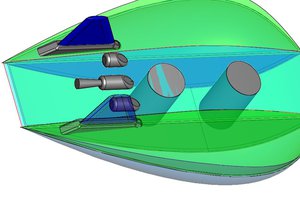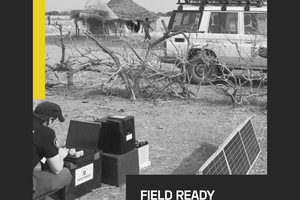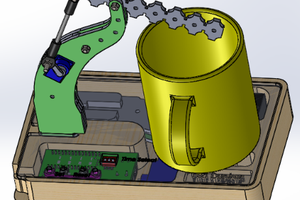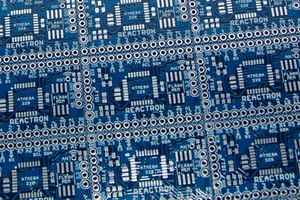We originally wanted to build a Recyclotron for our daughter's school, both as a way to encourage recycling but also as a teaching tool about currency, relative value of goods, etc. After discussing the idea with others it became clear that such a machine could be useful to other audiences as well.
The goal of this project is to develop an open-source set of plans that would allow anyone in the world to produce a Recyclotron for $1,000.00 USD or less with locally available materials and only a moderate level of skill and experience. Our personal intent is to develop these plans and produce at least a single prototype that can be used for field testing of both the physical design and work the kinks out of the credit system.
From a technical perspective, Recyclotron consists of a modular set of "cells" where items are stored, a control unit responsible for monitoring cells, managing credit and dispensing tickets and a chassis that encases the cells and control unit and provides environmental protection, etc.
Cells consists of an enclosed box with a locking transparent door. The cell design has posed the most complex component of the system as it needs to be simple and inexpensive to produce while providing a reasonable level of security and low maintenance. Cells may have a level of independent intelligence and may even incorporate the "price" display but this isn't set in stone yet.
The control unit will be a commodity embedded system (originally an Arduino but now most likely a Raspeberry Pi) and a means of generating/reading physical tickets. Here again the exact method is not determined, it could take the form of a thermal printed ticket with a code that can be entered via keypad or a magstripe card dispenser/reader, RFID, etc. There are costs and complexity trade-offs for each option but the ideal solution will be one that is reliable and appropriate for the local users (i.e., don't use a smart phone app to manage credit in a kindergarten, etc.).
Chassis design is more straightforward. The obvious first choice is similar to the rectangular shape of a common soda machine, but other forms are possible and should be chosen again to suit the environment (an indoor Recyclotron would have significantly different needs than an outdoor unit).
One more aspect that has been debated is if Recyclotrons should talk to each other. Generally the thought is no, if only to reduce cost and complexity but also because one of the goals of Recyclotron is to focus on local goods exchange (we don't want to encourage people to burn fuel moving goods from one Recyclotron to another).
 jason.gullickson
jason.gullickson




 starlord
starlord
 Supplyframe DesignLab
Supplyframe DesignLab
 Nickcasio
Nickcasio
 Kenji Larsen
Kenji Larsen
Interesting concept.
I think the "Project Log" should be in the "Project Details" instead, though... as it seems a bit vague until getting to the log regarding kids casting off toys, which makes a lot of sense.
Similar to @Duane Degn's analysys, many of these concepts could be implemented sans-machine... e.g. each week a teacher would hold an auction of the children's unwanted toys...
But, the vending-machine idea is groovy. Before the kids' toys idea, I had a visual of something like a vendor-bot in a maker-space... Don't need that Arduino anymore? Exchange it for someone else's discarded Wifi gizmo...
Tickets... Thermal-printed, with a barcode or QR code, seems a heck of a lot easier/cheaper than RFID ;)